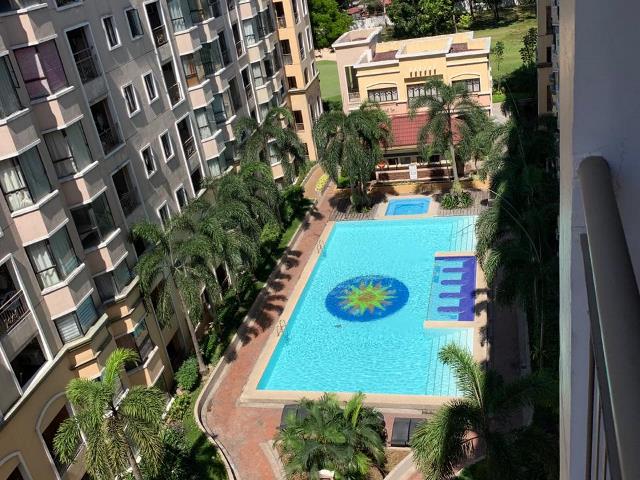Investing in Singapore’s dynamic real estate market offers various opportunities for both seasoned and novice investors. Among these opportunities, rental strategies play a crucial role in determining the profitability and sustainability of the investment. The choice between long-term and short-term rental strategies for Singapore condos is a pivotal decision that can significantly impact your returns, management workload, and overall investment experience. This article delves into the intricacies of both approaches, helping you make an informed decision tailored to your financial goals and lifestyle.
Understanding Long-Term Rentals
What Are Long-Term Rentals?
Long-term rentals typically refer to leasing a property for a period exceeding six months, with a common duration of one to two years. This rental strategy is characterized by stability and consistency, offering a steady stream of income with fewer tenant turnovers.
Benefits of Long-Term Rentals
- Stable Income: One of the most significant advantages of long-term rentals is the predictability of rental income. With tenants committed to longer leases, you can rely on a consistent monthly rental payment.
- Lower Vacancy Rates: Longer lease terms mean fewer periods where the property is vacant, reducing the risk of income gaps and the costs associated with finding new tenants.
- Reduced Management Efforts: With long-term tenants, the frequency of tenant turnover is minimized, leading to fewer property inspections, lease agreements, and marketing efforts to attract new renters.
- Stronger Tenant Relationships: Extended rental periods foster better relationships between landlords and tenants, often resulting in tenants taking better care of the property.
Drawbacks of Long-Term Rentals
- Lower Rental Rates: Long-term rental rates are typically lower than short-term rental rates, which can impact overall profitability, especially in a high-demand market like Singapore.
- Less Flexibility: Committing to long-term leases can limit your ability to adjust rental rates in response to market changes or personal circumstances.
- Risk of Problematic Tenants: If you end up with a difficult tenant, it can be challenging and time-consuming to resolve issues or evict the tenant if necessary.
Exploring Short-Term Rentals
What Are Short-Term Rentals?
Short-term rentals, often facilitated by platforms like Airbnb and HomeAway, involve leasing a property for short periods, typically ranging from a few days to a few months. This strategy is popular among tourists, business travelers, and individuals seeking temporary accommodation.
Benefits of Short-Term Rentals
- Higher Rental Income: Short-term rentals usually command higher nightly rates compared to long-term rentals, potentially leading to higher overall income, especially in peak tourist seasons.
- Flexibility: Property owners have the flexibility to adjust rental rates frequently based on demand, special events, and market conditions.
- Personal Use: Short-term rentals allow owners to block off periods for personal use, making it an attractive option for those who occasionally need the property for themselves or their guests.
- Meeting Market Demand: With the rise of the sharing economy and the popularity of vacation rentals, short-term rentals can tap into a broad market of travelers seeking unique accommodation experiences.
Drawbacks of Short-Term Rentals
- High Management Efforts: Managing a short-term rental requires significant effort, including frequent cleaning, check-ins, check-outs, and constant communication with guests.
- Inconsistent Income: Income from short-term rentals can be volatile, with occupancy rates fluctuating based on seasonality, market trends, and external factors such as travel restrictions.
- Regulatory Challenges: Singapore has stringent regulations regarding short-term rentals, with specific areas where such rentals are prohibited or heavily regulated. Compliance with these regulations is crucial to avoid fines and legal issues.
- Higher Wear and Tear: Frequent guest turnover can lead to increased wear and tear on the property, necessitating more frequent maintenance and repairs.
Factors to Consider When Choosing a Rental Strategy
Location
The location of your condo is a critical factor in determining the optimal rental strategy. Areas with high tourist traffic and business activity, such as the Central Business District (CBD) and Marina Bay, may be more suitable for short-term rentals. Conversely, residential neighborhoods with good schools and amenities might attract long-term tenants.
Property Type and Amenities
The type and quality of the property, as well as the amenities it offers, can influence its attractiveness to different types of renters. Luxury condos with extensive facilities might be better suited for short-term rentals catering to tourists, while standard apartments could appeal to long-term tenants seeking affordable living options.
Market Demand
Understanding the demand in your target market is crucial. Research occupancy rates, average rental yields, and competition in the area to gauge whether there is a higher demand for long-term or short-term rentals.
Legal and Regulatory Environment
Singapore has strict laws governing short-term rentals. Ensure that you are fully aware of the regulations applicable to your property and comply with all legal requirements. Long-term rentals typically face fewer regulatory hurdles but still require adherence to tenancy laws.
Financial Goals
Your financial objectives should guide your choice. If you seek stable, predictable income with minimal management effort, long-term rentals may be the best fit. On the other hand, if you are willing to invest time and effort for potentially higher returns, short-term rentals could be more lucrative.

Case Studies: Long-Term vs Short-Term Rentals in Singapore
Case Study 1: Marina Bay Condo
A luxury condo in Marina Bay, equipped with high-end amenities and stunning views, was initially rented out as a long-term rental. The owner switched to a short-term rental strategy through Airbnb, targeting business travelers and tourists. The property saw a significant increase in rental income, especially during peak seasons, despite the higher management efforts and compliance with regulations.
Case Study 2: Bukit Timah Apartment
An apartment in the residential area of Bukit Timah was leased to long-term tenants, including families and expatriates. The owner enjoyed a steady rental income with minimal management hassle and a lower vacancy rate. This strategy suited the area’s demographic and the owner’s preference for stability over higher but volatile short-term gains.
Conclusion
Choosing between long-term and short-term rental strategies for your Singapore condo depends on various factors, including location, property type, market demand, legal considerations, and your financial goals. Both strategies offer distinct advantages and challenges, making it essential to carefully evaluate your personal circumstances and investment objectives. Visit Emerald Of Katong if you need more information or have any questions about the long-term vs short-term rental strategies for Singapore condos.



